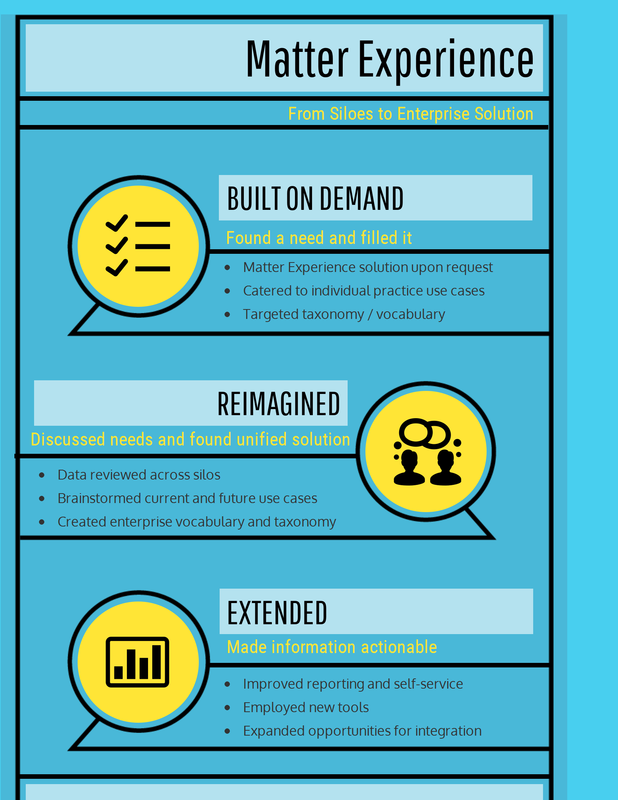Doing more with less: Knowledge Management in a low cohort year.
Large law firms can often be strangers to lean economic years; while profits per partner may dip associates and staff are usually in abundance. Late 2022 and early 2023 have seen the impact of the most recent global financial downturn that initiated some large AmLaw firms to announce reductions in staffing. The National Association for Law Placement (NALP)’s 2022 recruiting report indicates that this may be part of a leaner trend in associate cohort hiring for 2023 and 2024. Currently offers to 2023 summer programs are down 2% and 44% of the law firms surveyed reported making fewer offers than the year prior (per the NALP report). While this may be “born out of the pandemic” to be the “new recruiting normal,” it is also an opportunity for legal support teams, e.g., Knowledge Management, Innovation and Business Development to leverage their knowledge of how the business side of the law firm works and improve that functionality.
Blogs, conferences, and social media are filled with stories about AI and its evolving role in the practice, and business, of law. Some suggest that AI may replace certain associate work, thus reducing the need for as many associates. However, little is said about the time and effort it takes to bring these AI tools up to a standard allowing lawyers to build trust in the results provided by these tools. Similar to the promises of Enterprise Search, Legal AI tools show promise but as with Enterprise Search, will require resources (personnel, budget, etc.) to provide the answers practitioners will trust. At the same time clients are still expecting firms to perform at the levels they expect and are accustomed to receiving.
As has been experienced in the past with financial belt tightening, the purchasing and rolling out new technologies slows as well. With adoption being the perpetual problem, the idea of coaxing more tech budget from the partnership in a down year is an anathema. That said, the mantra should now be “time for that ROI.” This presents an opportunity to make use of the firm’s existing data, experience, and knowledge, and deliver services with minimal interruption (and maybe even bolster those systems going forward). Firms already have installed many systems that are not being used to their fullest such as: experience management tools, enterprise search and document automation systems. All of these systems and databases are in production but waiting to have their fullest potential realized. Additionally, unlike AI, the data is already available, sitting in a repository, a local shared drive, or other siloed locations just waiting to be leveraged. Much of it is finalized: filed pleadings, closed deal documents, successful (or unsuccessful) pitches and proposals. Though much of this data may have already been loaded into previously purchased and installed system it is possible a re-evaluation of the classification process is needed.
If data is missing, or appears to be misclassified, you need an evaluation of where the data lives in the firm and who is responsible for it. Collaborate to identify data being tracked in multiple places and assess who has (or should have) the single point of truth. Adding approved taxonomies, similar to those evangelized by SALI will ensure that teams are using the same definitions and the same data such that only one team needs to capture it while the others can leverage the collected information. This has the additional bonus of harmonizing your data with external sources that use the same schema, eliminating the need to constantly map your data to a vendors definitions.
The Firm’s Customer Relationship Management system is an integral part of the firm’s operations. It is not only receiving and importing data, but that that data needs to be kept up-to-date: removing duplicates, using a workflow to reflect professional development, tracking who knows who and where alumni move after they leave the firm. This data will help the firm cultivate a network of contacts to partner on projects or identify new client opportunities.
If done properly, most of these systems should already be set up to succeed. Searches should produce documents and answers to questions. Duplicative (and burdensome) FAQs and databases across practices should be eliminated or harmonized, and metadata added to assist in findability. KM and Marketing teams have been training, aligning and future-proofing systems and data, so let them be the coaches. Covid drastically changed how law firms think and work. The added pressure of reduced headcount and tension from AI-assisted tools will only compound that change.
The advent of more fully integrated AI tools will certainly have an impact on legal practice. But, in the near team, that impact will be imperfect and incomplete. And, since both those factors fly in the face of any attorney’s work style, now is the time to use the firm’s existing knowledge and experience to lead to greater success with fewer people.
LKO Information Management Consulting, LLC is committed to identifying and helping your teams leverage these opportunities. To find out more please contact us at Info@lkoinfo.com.



